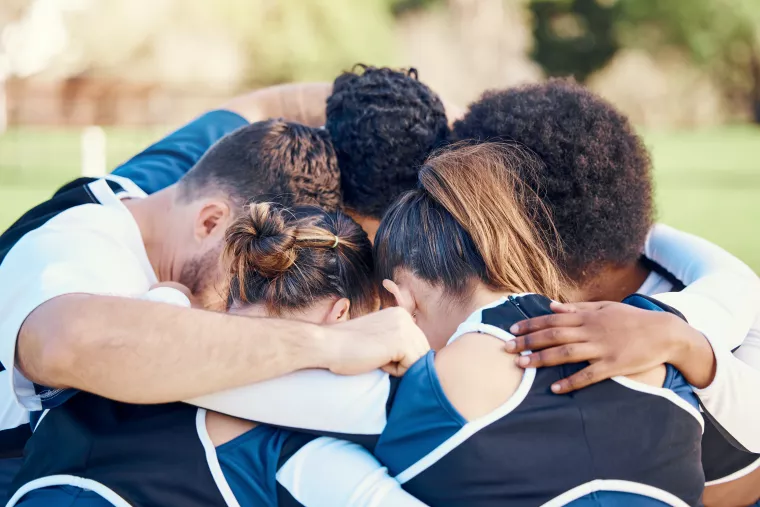Module 2 - The stress response
- Understand the stress response and how stress relates to performance.
- Highlight approaches to improve your athletes' stress management.
"I’ve missed more than 9000 shots in my career. I’ve lost almost 300 games. 26 times, I’ve been trusted to take the game-winning shot and missed. I’ve failed over and over and over again in my life. And that is why I succeed.”
Stress and performance
The Yerkes-Dodson Law is a theory about the relationship between stress and performance. Essentially, the theory says that for us to perform at our best, we need to have some stress, but not too much
Low stress
On the left we have low stress, which is associated with underperformance. Athletes on this part of the curve are sleepy, bored or just not that excited to do what they are doing
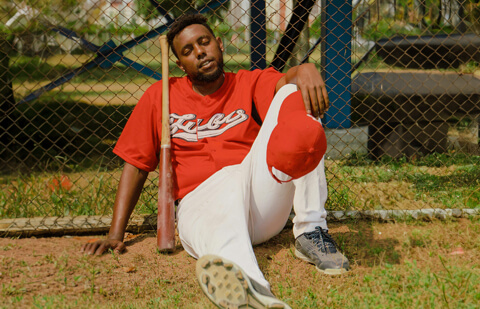

High stress

On the right part of the curve we have high stress, which is also associated with underperformance. Athletes on this end are stressed, anxious, frustrated or even too excited.

Optimal Performance
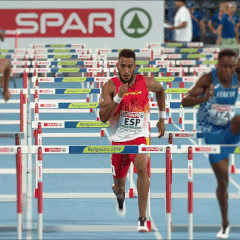 The middle zone is where we want athletes to land. Here they are “ready to go,” with the system fired up enough to perform at its best, but not so fired up that they are starting to burnout.
The middle zone is where we want athletes to land. Here they are “ready to go,” with the system fired up enough to perform at its best, but not so fired up that they are starting to burnout.
- In a team setting, each individual might have their own performance curve. Some athletes need be at a higher energy level to perform at their best, others lower. The optimal amount of stress may be different.
- Your energy level is also affected by other things going on in your life. When you have a lot of stressful things going on at home, adding even a small amount of stress on the sports front may be too much.
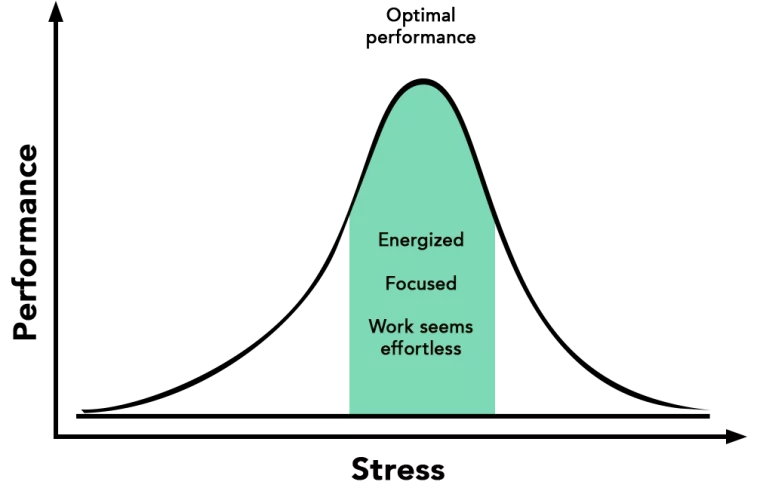
The stress response
- Imagine you’re on a hike and you see a bear. Your heart starts racing, you feel sweaty. This is called the stress response and it’s designed to get you ready to face danger.
- The stress response is BIOLOGICAL—caused by your body releasing chemicals into your blood stream. You can’t just stop it.
- Triggering the stress response is not all bad---your reaction time is quicker, your senses are sharpened—but it turns off the thinking part of your brain, making it hard to perform at your best.
- The good news is---there are things you can do to manage your stress response.
Click on the figure to see what happens in your body during the stress response.
The stress response in sport
Why do we get stressed in sport? Because sports are stressful.
- Failure: Failing is a part of sports (missing a goal, coming in second place) and it feels bad.
- Social Anxiety: When we fail in sports, other people are watching, and that makes us feel worse.
- Performance Anxiety: We often worry that we’re going to fail, which can trigger the stress response, making us anxious and on edge.
- Physicality: Sports are also physical, and people pushing or yelling at us can make us angry.
These are all inherently human reactions and they trigger the stress response, which is in your body. There are also things you can do to help get through these emotions.
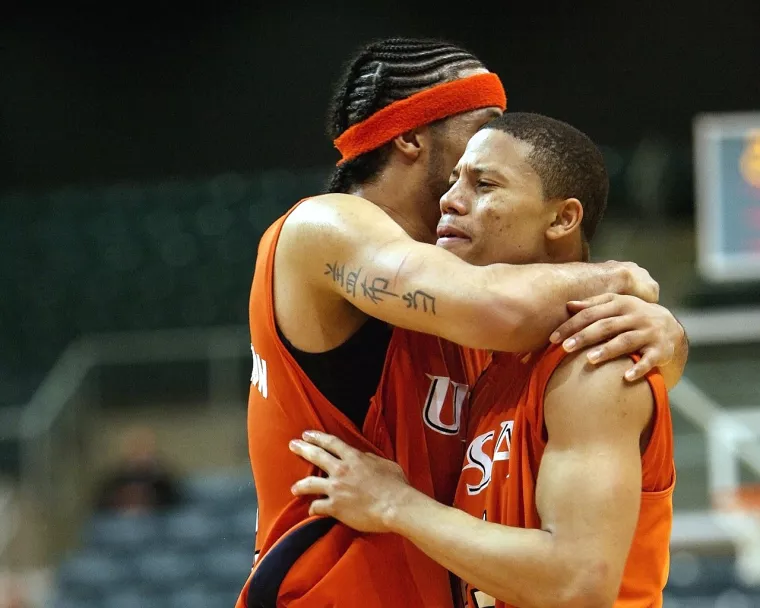
The problem with "sucking it up"
- In the past, athletes would try to “suck it up” or push down emotions when they came up.
- The problem with this approach is when you try not to feel an emotion, it builds and builds, like shaking a soda bottle.
- Eventually the soda explodes and you get very angry or upset.
The solution is to open the lid
- If you recognize emotions when they’re happening and let yourself feel them, they will actually go away more quickly.
- Our goal is to teach you to manage emotions when they come up, rather than waiting until it all builds up and you explode.
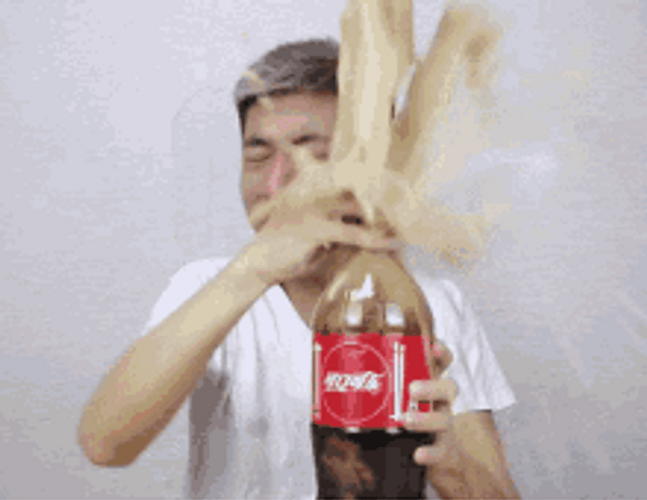
The stress response and trauma
We’ve covered what happens in your body when you see a bear, but what if you’re constantly in a stressful situation?
- When things are unsafe all the time, your stress response becomes hypersensitive.
- Even small things can trigger a large response, causing people to have out of control emotions like panic attacks or rage.
- If people are experiencing very strong emotions like this, the approaches we’ve taught you might not work. This is when you need to reach out for - calling an athlete’s parent, reaching out to other emergency individuals from your school (like a counselor or therapist) or using a crisis line like 988 or 911
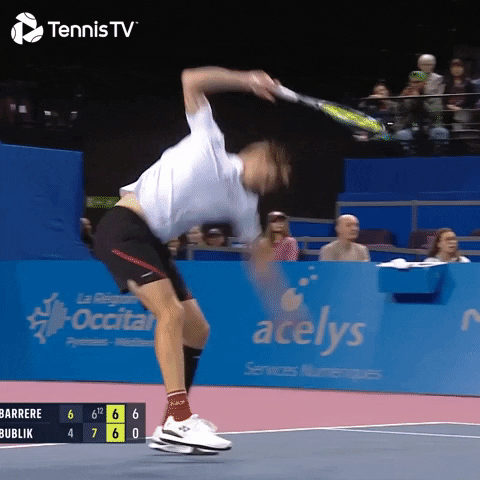
Managing the stress response
You’ve learned about the stress response and the relationship between stress and performance, but how do you help your athletes manage stress and get back to an optimal energy place when challenges arise?
There are a few key principals that will help you and your athletes deal with stress, and they fall into three general categories-- biologic, psychologic and sociologic or BIO-PSYCHO-SOCIAL.
 BIO
BIO
Take care of your body—Athletes who sleep well, eat well, and take breaks between trainings are more stable emotionally and better able to manage the challenges that arise during sport.

 PSYCHO
PSYCHO
Practice getting to focus—Using breathing and other techniques to improve your focus on a daily basis can help you get there when you need to during a game.
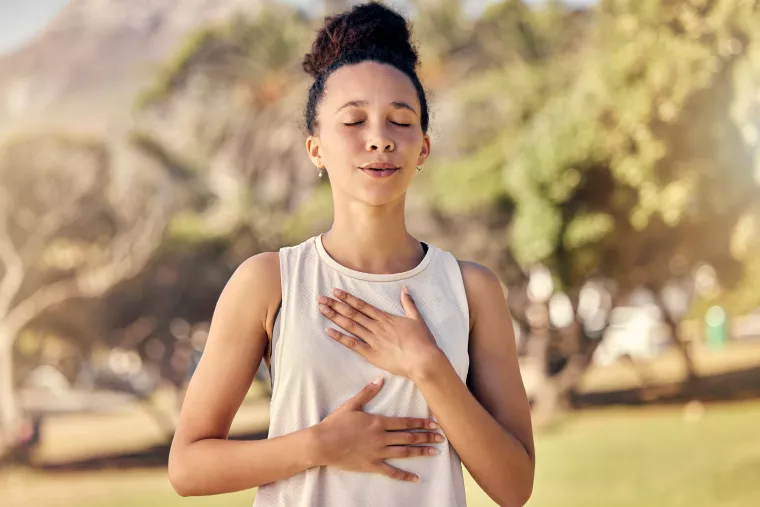
 SOCIAL
SOCIAL
Develop a cohesive team---Coming up with team goals and utilizing activities to build trust with your teammates is essential to being your most powerful selves in competition.
